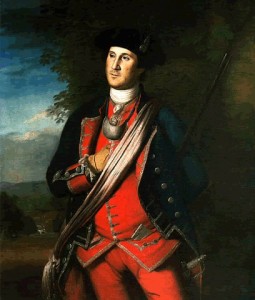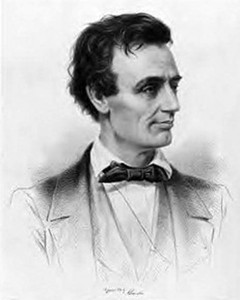The New-York Times of December 15, 1860 published a good deal from the London Times. Here are some excerpts. The article titles link back to the complete stories in The New York Times Archive.
I. We Like Those American States United
From the London Times, Nov. 29.
Democratic institutions are now on their trial in America. It Would be a strange coincidence if the same year should witness the accomplishment of Italian unity under a constitutional monarchy and the disruption of a far mightier Union under the dislocating agency of Federal Republicanism. WASHINGTON, like ALEXANDER, troubled in his last days by misgivings as to the solidity of his own workmanship. He had found American patriotism strong enough to brave in a good cause the armies of GEORGE III., but would it be proof against the selfishness of prosperity, the meanness of party and personal interests, the fierceness of provincial jealousies? Could the dignified and statesmanlike moderation of the founders of liberty be transmitted to their successors, or would later growth develop those harsher and vulgar qualities which too often appear in the Anglo-Saxon character? We dare not say that the experiment is yet complete. Two generations have amply sufficed to confirm and transcend the experience of antiquity as to the expansive energies of a Democracy, but its capability of cohesion still remains open to question. At a crisis like the present the centrifugal seems more than a counterpoise to the centripetal force, if we are to take the Southerners at their word. …
Of one thing the Democrats may be well assured — that the character and prestige of the several United States in the eyes of Europe depend on their Federal union. Lord NORTH saw this when he skillfully proposed a compromise, which would have had the effect of isolating some from the rest, and BURKE resisted his scheme of conciliation on that very ground. “Hoc Ithacus velit;” — the stubborn and mutinous spirit of the South is falling into the tactics of the enemies of American independence. Let there be no mistake as to English public opinion on this subject. If we have paid a sincere homage to the rising greatness of America, it has not been to that which the Southerners are so anxious to conserve, but to that which they are striving to destroy. All that is noble and venerable in the United States is associated with the Federal Constitution. It is not the demonstrations of Southern ruffianism in Congress, or the fillibustering aggrandizement of the South, from the Mexican annexations downwards, or the Fugitive Slave law, or the Dred Scott decision, or the Kansas-Nebraska act — it is not these, or any other triumph of Democratic insolence during their ascendency of half a century, that has commanded the sympathy and admiration of Europe. We have judged these things leniently, as the actions of great men and great nations ought to be judged, because we knew the perilous conditions under which so mighty an enterprise as the civilization of America must of necessity be carried out, and have confidence in the practical good sense of the American character. …
But if this rough sparring should by any chance be carried too far, and the threat so often uttered in jest or wantonness should be repeated in earnest and lead to bloodshed, it is some comfort that the aggressors will not be the stronger party. Mr. LINCOLN will in that case command a majority in Congress, and will carry with him the support of all those who, however tolerant of Slavery, will not tamely acquiesce in its becoming the basis of an illegal and hostile Confederation. …
II. A. Lincoln’s Amazing American Career
From the London Times, Nov. 28.
The race of life is so interesting a subject, both to those who have succeeded in it and those who have been disappointed in it, that the adventurous career of the President elect of the United States, as the New-York Press describes it, is sure to attract much notice. It is put forward as a remarkable instance of what a man can do “under the influence of American institutions,” and so undoubtedly it is. We will only alter the phrase a little, and say that it is a remarkable instance of what a man can do in America in the absence of all institutions to check him. The favorable peculiarity of American institutions in Mr. LINCOLN’s case has been that they did not exist, that it has been the great institution of America not to have institutions in the sense in which we of the old world have them. It is plain that our institutions, if they are a great assistance to society, are at the same time a great check to individuals. … Now, take a man of Mr. LINCOLN’s versatile and fertile mind, and this liberty of professional ascent is an enormous gain. It is everything to him. …
Now, as we say, it is obvious what a clear gain “American institutions” are to a man of this aspiring mould of wind joined to such antecedents. Such antecedents must have been a fatal drag upon Mr. LINCOLN in any country of the Old World, at least in its normal condition, and without a revolution to disturb it. Would the profession of the law, for example, have been practically open to an ex-farmer, ex-bargeman, ex-storehousekeeper, ex-land surveyor in this country? It would not have been. The idea would never have entered into Mr. LINCOLN’s head. The venerable looks of the sages of the law, their wigs, their ermine, the divinity which hedges in a judge, the proud traditions of the profession, would have forbidden the aspiration. At a certain time it is too late to begin.
But American active life is restless, because, as new material to be mastered comes in with every new profession, where a man can go on changing from one profession to another he multiplies the necessity for conquest, and keeps up the struggle for life, and the most arduous part of that struggle, far longer. In fact, the American never lets himself rest. There is no harbor of refuge which receives the accomplished professional man at a certain time of life, where he simply occupies himself in the use of tools which he has already mastered; no, he must migrate from his professional home to another untried soil. Everybody migrates in America, and the early removals of the Lincoln family … only typify the transplantations of American intellect, the constant breaking of new professional ground, and the uninterrupted succession of new positions and opportunities which convey the Mississippi boatman to the dignity of the White-House. … [The system in the Old World] may not produce the most prominent instances of individual elevation, but it produces a large amount of moderate distinction, which is thoroughly enjoyed because the man has time and rest to enjoy it, whereas the American plan, for one great restless intellect which attains its complete object, has thousands which go through the whole career of restlessness and never reach the goal.
III. Britain Will Not Support South Carolina
English Sentiment on Secession.
The New-York Times editorializes on the views from London:
We fear our Southern friends will derive small comfort from the comments of English journals upon the Disunion movement. They seem to have very little sympathy with it or respect for it. …
The British people are far more fanatical in their hatred of Slavery than the North has ever been. They do what even New-Englanders have never done: receive the negro on a footing of social equality. They lose no opportunity to flaunt their hatred of Slavery in the face of Southerners. They have spent a hundred millions of dollars to abolish it in their own Colonies. They are incessantly scolding our Government for its inefficiency in suppressing the Slave-trade. They are spending hundreds of thousands of dollars yearly to procure cotton from other regions of the earth, and in every conceivable way they are constantly evincing their hatred and detestation of the institution which is to be the basis and corner-stone of the new Confederacy.




